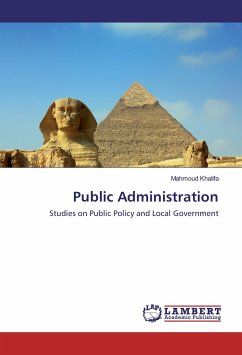Public administration in Africa has its own specific features for at least two reasons. First, African societies are not organized along the lines of competing interests driven by their grounding in the economic production process. These societies have never been subject to an agrarian revolution, let alone an industrial one, that allows for the evolution of a system of social stratification similar to what is found in economically developed countries. In the latter, society is shaped by the state, much of it in its own image. The second reason, therefore, is that the African state-the locus of public administration-is a foreign creation imposed on society without roots in the economy or society. This tends to make its governance capricious and shaped foremost by political battles over how rents and privileges are shared among groups that come together for reasons of consumption rather than production. This is a general feature of the African scene, but it is qualified by a variable colonial legacy and a post-independence development experience.
Bitte wählen Sie Ihr Anliegen aus.
Rechnungen
Retourenschein anfordern
Bestellstatus
Storno








